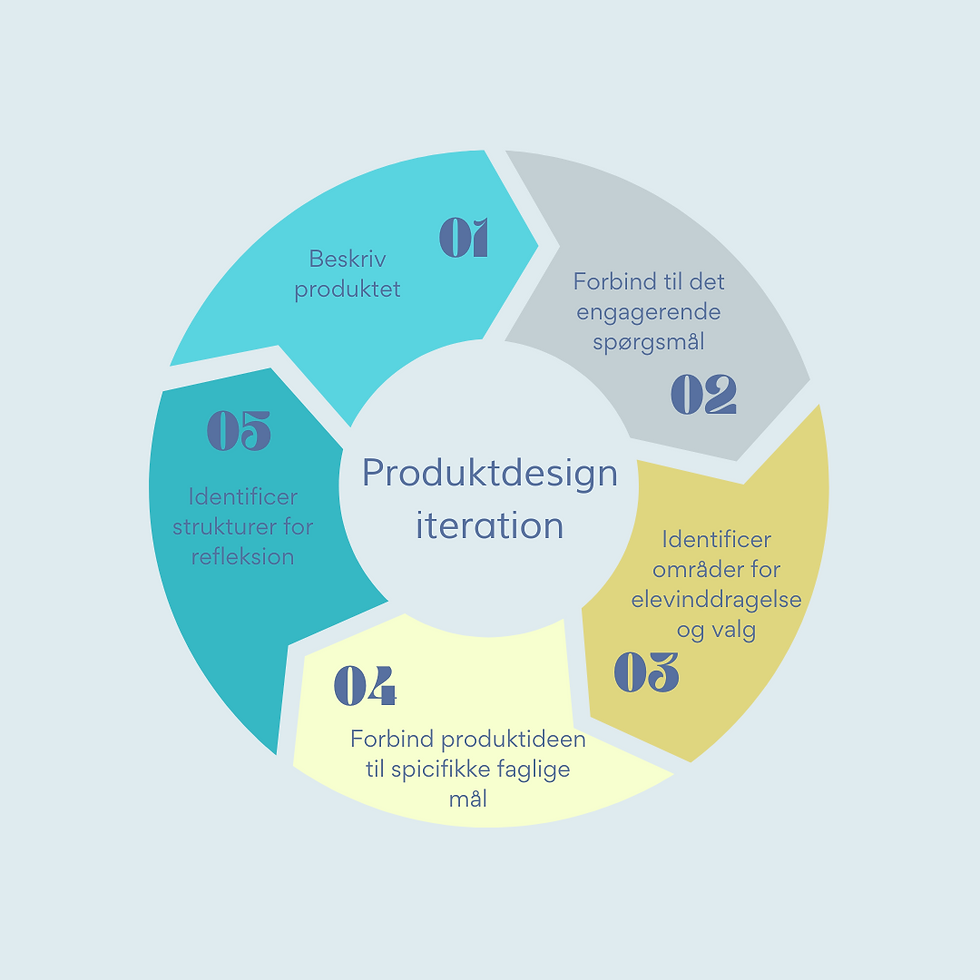Are "Corona Schools" The Gateway To An Education Revolution?
- Loni Bergqvist
- 29. apr. 2024
- 4 min læsning

After several sleepless nights, my husband and I finally made the decision to send our three kids back to school and daycare when the opportunity arose in mid-April. Despite being exhausted and (really) ready to get back to some normalcy, the reality of sending my kids back into the world after the Covid-19 shut-down was terrifying. The likelihood of the virus spreading throughout schools felt imminent and like it was only a matter of time before we all became sick.
I can't say exactly what the tipping point was. Perhaps it was my husband's unwavering trust in the government (he's Danish). Maybe it was my kids missing their friends. Maybe I just became really desperate to work again without hearing Frozen 2 playing in the background. We made the decision and never looked back.
Denmark started the reopening process with children in daycares and in grades 0-5. You've probably already read about many of the restrictions put in place to secure good hygiene, control student movement and distance students in physical spaces. They extended the reopening process to students in grades 6-9 last week though it should be noted that individual schools and districts have done this differently. Some are still doing remote learning from home, others have joined the younger students in the physical school building where there has been room. Schools with limited space have had to look elsewhere to host classes.
As an advocate for Project-Based Learning and student-centered learning approaches that tend to "blow-up" the current organization of school, the structures outlined by "Corona School" was troubling. Understandably, stopping the spread of Covid-19 requires a large amount of control on behalf of teachers. My vision for lively, collaborative and free learning environments was held hostage by the very practical demands of returning to school.
Something interesting is happening in Denmark.
Over the last few days, several news articles have documented schools and students actually benefiting from "Corona School." The articles in Danish can be found here and here.
Despite the restrictions mentioned above, Danish schools are finding:
Smaller class sizes have led to more personalized learning and individual attention for students. This has especially benefited students with special needs.
Smaller classes have reduced the conflicts for students between students in class because the teaching is more fluid and less rigid/controlled.
The shortened school day is allowing teachers and students more energy and appetite for learning. Students are less exhausted and more excited to return to school the following day.
An emphasis on going outdoors has led to more active and hands-on learning.
Classes interacting with fewer teachers has placed less demand on learning subject-knowledge and more on thematic teaching.
Teachers who used to teach several subjects are able to go in-depth with a few at one time, creating deeper learning and more authentic experiences for students.
There are no longer bells ringing to change classes, the clock is turned off. Students comment that they are able to accomplish more than when they change classes each period.
Since the exams and mandatory learning goals are abandoned for now, teachers report feeling more playful with students. They are working with co-creation and involving students in making decisions more than before.
There is more quality time spent between teachers and students, resulting in better relationships and increased student well-being.
Limited physical space in school buildings have led classes to be held in community centers, libraries, Tivoli Amusement Park and even The Copenhagen Zoo.
Some teachers even say the school is better post-Covid-19 than before. One teacher even said It's everything you want and dream of being a teacher.
These experiences could be surprising given the drastic changes to school as we know it when they reopened.
But in hindsight, I don't find myself so surprised.
Smaller class sizes? Outdoor learning? Thematic teaching? The elimination of exams, curriculum and learning goals? No bells? Co-creation with students? Shortened school day? Fostering relationships with students?
Of course these changes would result in joy, freedom and learning.
As a consultant, I often find myself in a disruptive role. I am trying desperately to stop the treadmill that schools and teachers often find themselves on so we can reflect, become curious and reimagine. I have to admit that Covid-19 has been far more effective in this role than I could ever hope to be and it has not been the shut-down that has done this... it's been the reopening.
Moving learning to the online environment has been a disruption, no doubt. But the experiences and lessons of the shut-down almost seem too far removed to effectively transfer to life in the physical building. Although valuable, the lessons of the shut-down might be tucked away in the back of our minds, belonging to an extreme situation. An extreme time. The reopening though, is what we know. We know the buildings. We know the roles. We know how school operates in this context. This is the moment of disruption. We can't go back to normal, so what do we do?
Although I'm not Danish, I find myself extremely proud of this country. As one of the first countries to reopen, they have found their way and possibly even begun to reimagine a new future for schools built on play, joy and connection.
I can only hope the world can continue to learn from the experiences in Denmark as we all move forward.
By Loni Bergqvist



Kommentarer